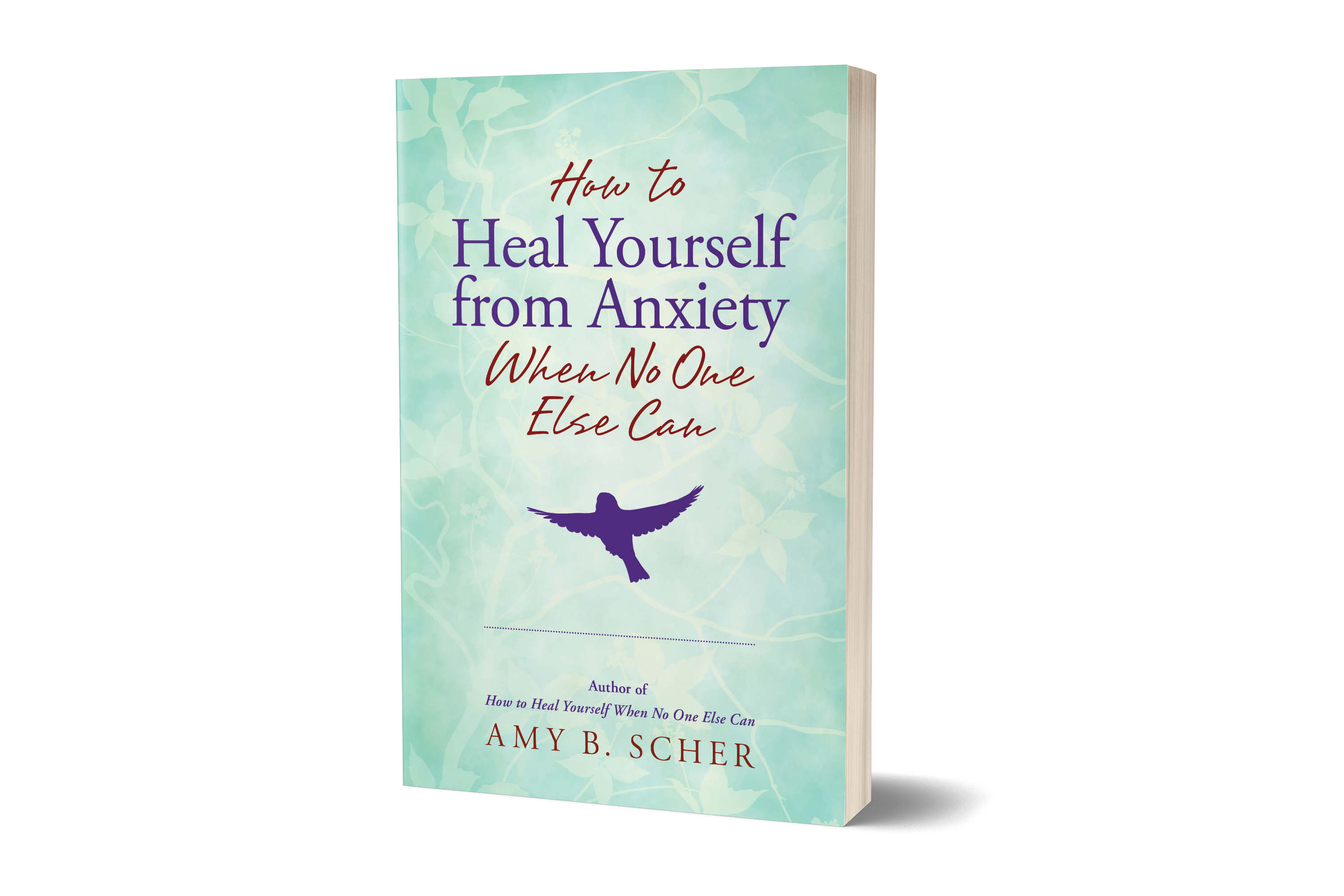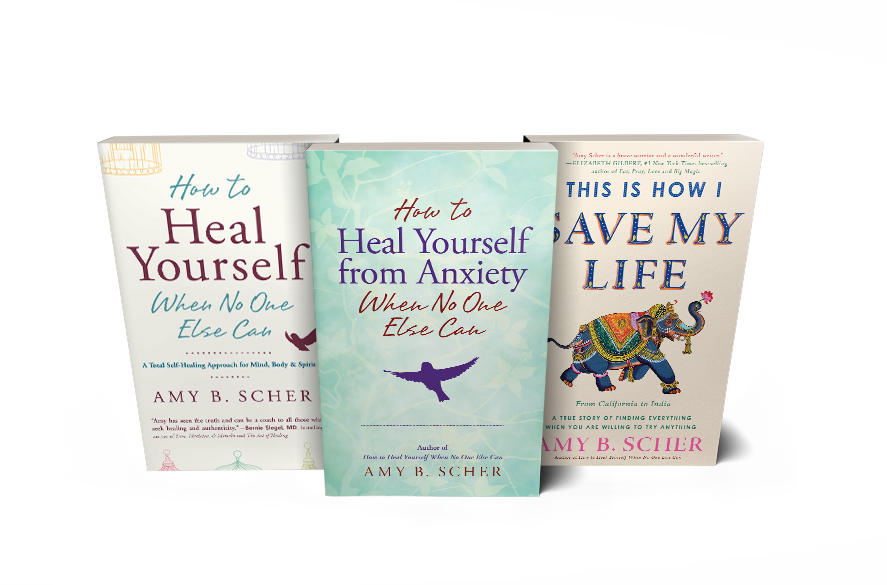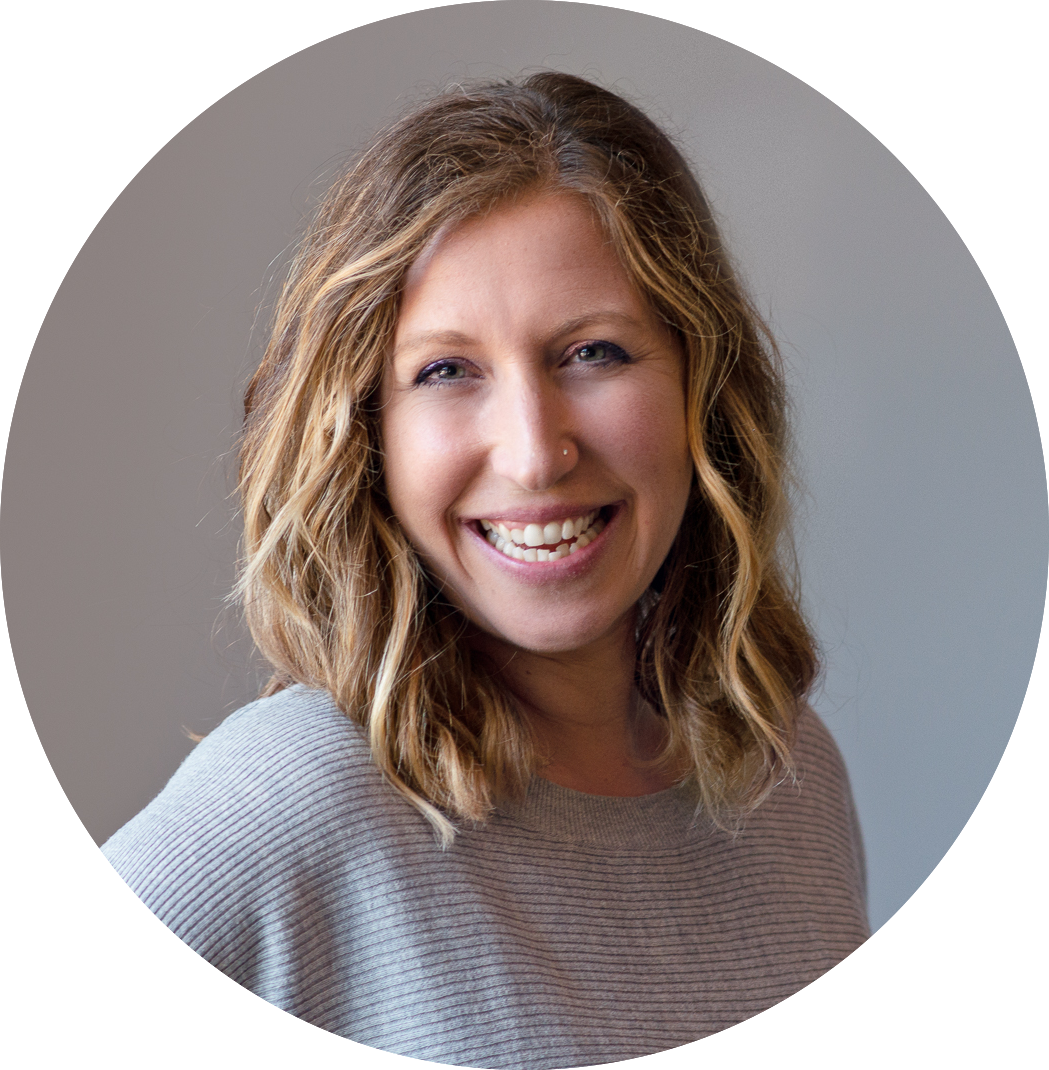Amy’s New Book: How To Heal Yourself From Anxiety When No One Else Can
Anxiety is not “just fear” and it doesn’t come from out of the blue. In fact, everything you think you know about anxiety is about to change. With a brand new approach to understanding and healing anxiety, this book is unique, go-at-your-own-pace, and full of hands-on techniques and guidance that illustrate one profound truth: healing from anxiety is possible.
“Everyting about true healing comes down to one simple rule I've learned,” says Amy. “You must become WHO-YOU-REALLY-ARE.”
“That means to love, accept and be yourself no matter what. You can’t contract your energy for others or for fear or for anything else. No light dimming allowed. Your entire body feels when you are living in that state of being. When you get to the point of being unapologetically you, your energy will flow, your body will be in full healing mode, and you’ll be on your way to miracles. Bonus: Life will also be super fun and a million times easier than it is now.”
“I truly believe that straying from and separating from your inner being, or who you really are, is a major contributor to discontent in the body. The more you come back to being unapologetically you, the better your life will feel. It’s called being “in alignment” (we’re talking with who you are and want to be, not with everyone else) and it’s more amazing than you can imagine. Yep, it’s that simple.”

Feature
Help Your Book Become a Bestseller
3 Simple Ideas That Work
 You did it! You sold your book. Now what? I knew almost nothing about publishing when I got my first book deal. But that book has now sold over 30,000 copies and is translated into ten languages. With the release of my third book just a few months ago, I took time to reflect on all what I wish I knew when I started. Because it was a lot.
You did it! You sold your book. Now what? I knew almost nothing about publishing when I got my first book deal. But that book has now sold over 30,000 copies and is translated into ten languages. With the release of my third book just a few months ago, I took time to reflect on all what I wish I knew when I started. Because it was a lot.
Here’s my top simple ways to help your book become a bestseller.
1) Don’t Get Distracted
First lesson’s first: stay focused. It’s almost impossible not to obsess over other authors hitting the bestseller’s lists, how many followers your colleagues have, and more. But trying to keep up with the literary Joneses is a full-time job; and you don’t have time for that. Your job is to focus on the project that you poured your time, energy, and guts into; not to worry about what everyone else is doing.
- Redefine “bestseller”: You can aim for the "big lists," but getting your name on a list isn’t the only definition of a bestseller. Success will more likely come when you stop worrying about the New York Times bestsellers list and aim to make a big impact in your niche sector of the market. My first self-help book, How To Heal Yourself When No One Else Can (Llewellyn Worldwide 2106), was one I targeted very carefully to only a target audience; not everyone. The book is for people who have tried traditional methods of healing and looking for a new mind-body approach they could do themselves. So instead of focusing on everyone struggling with a health condition, I focused on the communities that I knew would embrace my book; such as those experiencing chronic illness interested specifically in natural healing modalities. I didn’t have to convert anyone or convince anyone. I only had to put it in front of the right people. It worked. Trying to be the “big fish” in an entire genre is exhausting. Trying to be the big fish in a smaller, targeted community is a path to success.
- Ignore the haters: Not everyone will love your book. That is a fact that’s better to hear from me first, than from your actual haters. Don’t comment on any negative reviews. You will get negative feedback and it won’t ruin your career (unless you comment on it). There will be many people who love your work than don’t. Focus on them instead of the few that don’t.
- Minimize importance of industry reviews: Don’t stress if your book doesn’t get reviewed by major publications, or any at all. I’ve known countless authors who got positive book reviews in major outlets with little to no bump in sales. None of my books got any major reviews and they’ve all survived without them. A book review can help catapult your book. But it doesn’t necessarily mean that it will.
2) Simplify
There is so much you can do for your book, but only so much you will do. Planning to do everything alone usually results in not doing enough.
Here are some simple ideas that can make a big difference:
- Share, share, share your book! But get a separate social media page so you don’t annoy people (even your Aunt Frida will “unfollow” you if your personal accounts become all about your product). People need to see something an average of seven times before they buy. Keep sharing wherever you can even if you feel like a broken record. If you can tell a story or share something interesting about your writing process in each post, you’ll gain more attention without a sales-like approach.
- Reach out to book clubs and support groups: Aim to get book clubs, support groups relevant to your topic, or groups of friends to read your book. If they are local, you can go do an in-person Q&A after. If not, you can do that via Skype. Create a reading guide (a simple list of Q&As) and put them on your website, share the link via social, and send them to book clubs and groups directly. Don’t underestimate the power of small groups of book lovers. This can be a more time and cost-effective approach than in-store events where only a handful of people might show up for all your effort.
- It’s okay to pay for social media exposure: I used Facebook ads successfully to promote my posts and my book directly. Social media has changed a lot in the past years and it’s harder and harder to get people to see your posts for free. But paying to boost posts to a target audience is a pretty good deal compared to other forms of advertising. Anytime you are getting your work in front of more people, you have more opportunity to interact, share your wisdom, and make sales. I try to respond to every single social media comment I get. From the feedback I get, I realized most authors don’t reply to their fans. You’ll really stand out if you do.
- Ask directly for reviews: Ask for Amazon reviews. Amazon reviews play into the algorithms that get your book seen by more people. If I know someone has read my book or they email me a question or comment, I ask if they’ll leave a review. You can say “Thanks so much for reading my book! Would you mind leaving a review on Amazon? It can be short and sweet but really helps potential readers decide if my book is for them, too.” GoodReads is another great place to get reviews. I offer incentives to reviewers. I offer signed bookmarks, which I easily designed and printed using an online printing company. You’ll get to beg even your family and friends for reviews.
3) Understand the role of PR
Your publisher should not be relied upon solely to get your book out into the world. They have so many books to work with that yours simply just can’t get all the attention. It doesn’t matter if you’re with a huge publisher or a tiny one. It’s a good idea to ask in advance what they do so you can be prepared. It probably won’t be as much as you wish. But the good news is there are great things you can do on your own if you understand how PR works.
- What PR is: PR is “awareness” that your book exists but doesn’t always directly result in sales. Some examples of PR efforts are placing essays in magazines and getting possible feature attention, podcast appearances, and the like.
- Should I hire outside PR? If you were to hire a PR firm, they would likely have you write first person essays and helpful articles that they could pitch to the media. But hiring outside PR is financial risk. You aren’t guaranteed press or sales and you probably won’t make your money back. However, PR can build up your profile as a professional speaker, teacher, etc. If that would be helpful to your career, it’s worth considering. If you’re looking at it just for sales, I’d say to skip it. PR firms are about $2,000 - $4,000/month and typically work on a three to six month contract. Again, you can do a lot of “PR” yourself by pitching essays and such to publications.
- Pieces you can write and pitch yourself: I’ve hired outside PR and have done a lot on my own. My biggest PR “wins” to date those ones I secured myself. Editors are open to hearing directly from authors with good content. Any author can write first person essays or informative articles tied to the theme of their book and and submit them to publications. My favorite resource on this topic is The Byline Bible, by Susan Shapiro (Writer's Digest Books, 2018). In it, the New York Times bestselling author and writing professor goes into great detail sharing how you can be a successful PR firm for your own book by writing pieces to pitch for publication.
Now that you have this guide, the only thing left to do is put it to work for you. You did the hardest part by writing that book. You’ve got this.
* * * * *
 AMY B. SCHER is the best selling author of How to Heal Yourself From Anxiety When No One Else Can and two other books. Amy has been featured in CNN, Washington Post Post, CBS, Cosmopolitan, The Los Angeles Review of Books and more. She works with new authors to help them confidently navigate the world of proposals and publishing. She can be found at www.amybscher.com.
AMY B. SCHER is the best selling author of How to Heal Yourself From Anxiety When No One Else Can and two other books. Amy has been featured in CNN, Washington Post Post, CBS, Cosmopolitan, The Los Angeles Review of Books and more. She works with new authors to help them confidently navigate the world of proposals and publishing. She can be found at www.amybscher.com.

